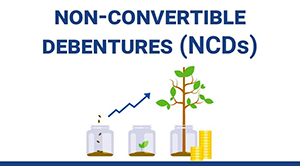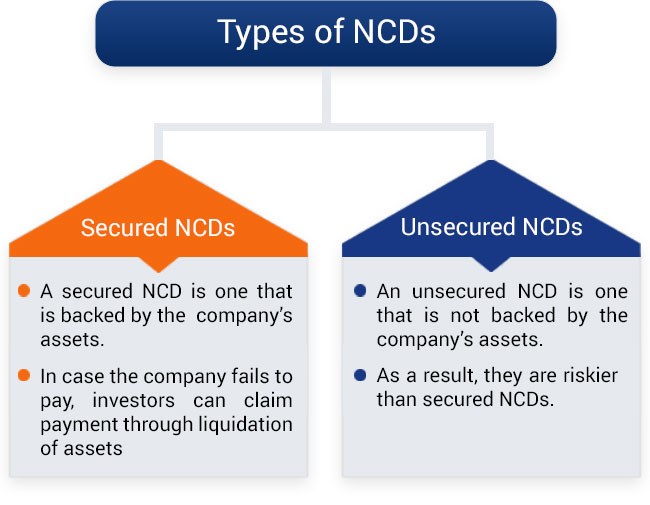- +91 7503020114/15/16/17
-




Non-convertible debentures(NCDs) are a financial instrument that is used by companies to raise long-term capital. This is done through a public issue.
NCDs are a debt instrument with a fixed tenure and people who invest in these receive regular interest at a certain rate.
The 8% Government of India Savings (taxable) bonds, 2003 is a bond issued by the Reserve Bank of India."
The heading is corporate bond while details mentioned GOI Saving bond that too Interest rate is 7.15% per annum.
Some debentures can be converted into shares after a certain point in time. This is done at the discretion of the owner. However, this is not possible in the case of NCDs. That’s why they are known as non-convertible.
Even though NCDs cannot be converted into shares, they offer other benefits.



© 2020 Gera Wealth. All rights reserved.
Risk Factors – Investments in Mutual Funds are subject to Market Risks. Read all scheme related documents carefully before investing. Mutual Fund Schemes do not assure or guarantee any returns. Past performances of any Mutual Fund Scheme may or may not be sustained in future. There is no guarantee that the investment objective of any suggested scheme shall be achieved. All existing and prospective investors are advised to check and evaluate the Exit loads and other cost structure (TER) applicable at the time of making the investment before finalizing on any investment decision for Mutual Funds schemes. We deal in Regular Plans only for Mutual Fund Schemes and earn a Trailing Commission on client investments. Disclosure For Commission earnings is made to clients at the time of investments. Option of Direct Plan for every Mutual Fund Scheme is available to investors offering advantage of lower expense ratio. We are not entitled to earn any commission on Direct plans. Hence we do not deal in Direct Plans.
AMFI Registered Mutual Fund Distributor | ARN-147697 | Date of initial Registration: 12th June 2018 | Current validity of ARN-147697: 11th June 2027.
Important Links | SID/SAI/KIM | Code of Conduct | SEBI Circulars | AMFI Risk Factors